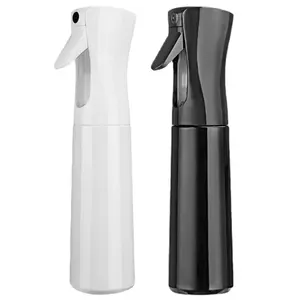
All categories
Featured selections
Trade Assurance
Buyer Central
Help Center
Get the app
Become a supplier














Giữ kết nối với những người khác là điều quan trọng để tồn tại. Với quyền. chai xịt nước, bạn có thể giữ liên lạc và trao đổi thông tin ngay cả ở những vị trí mà điện thoại di động không nhận được tín hiệu. Do đó, mua. chai xịt nước có thể là một quyết định cứu cánh. Mặc dù vai trò chính của họ là giao tiếp, nhưng bạn sẽ thấy nổi bật. chai xịt nước trên Alibaba.com được tải với các tính năng bổ sung cho các chức năng khác nhau.
Các tính năng này. chai xịt nước được thiết kế nhỏ và nhẹ, tránh trọng lượng không cần thiết. Với thiết kế và vật liệu sáng tạo, chai xịt nước có độ bền cao và pin của chúng có dung lượng lớn để đảm bảo chúng luôn được cung cấp năng lượng trong nhiều giờ. Phạm vi vô tuyến của họ và các tùy chọn tần số được đóng gói trong những điều này. chai xịt nước là mẫu mực, cho phép bạn giao tiếp với những người ở xa. Trong trường hợp khẩn cấp, chẳng hạn như bão sắp tới và thời tiết xấu, chúng sẽ là vô giá vì chúng hoàn hảo để phát ra tiếng kêu cứu của SOS.
Để đảm bảo hiệu suất và khả năng sử dụng tốt nhất, hãy sử dụng chúng. chai xịt nước tự hào về các tính năng giảm tiếng ồn bao gồm micrô và tai nghe. Các. chai xịt nước cũng được tải bằng các nút lớn để thao tác thuận tiện và chúng được tô màu rực rỡ để hiển thị cao hơn. Trên Alibaba.com, chai xịt nước có trong một bộ sưu tập lớn xem xét nhu cầu của những người dùng khác nhau. Bạn sẽ tìm thấy một số phù hợp cho trẻ em, thợ săn, người đi bộ đường dài, trong số các danh mục ấn tượng khác.
Hãy để số tiền của bạn mang lại cho bạn giá trị tốt nhất ngay hôm nay. Khám phá Alibaba.com và khám phá tuyệt vời. chai xịt nước phạm vi đảm bảo lợi nhuận tối đa. Chất lượng và hiệu suất đầu ra rất tốt và mọi xu bạn chi cho chúng đều xứng đáng.